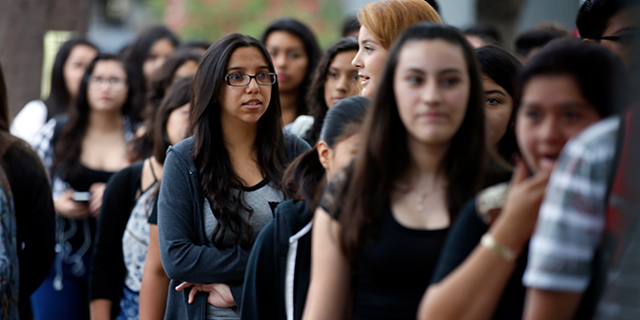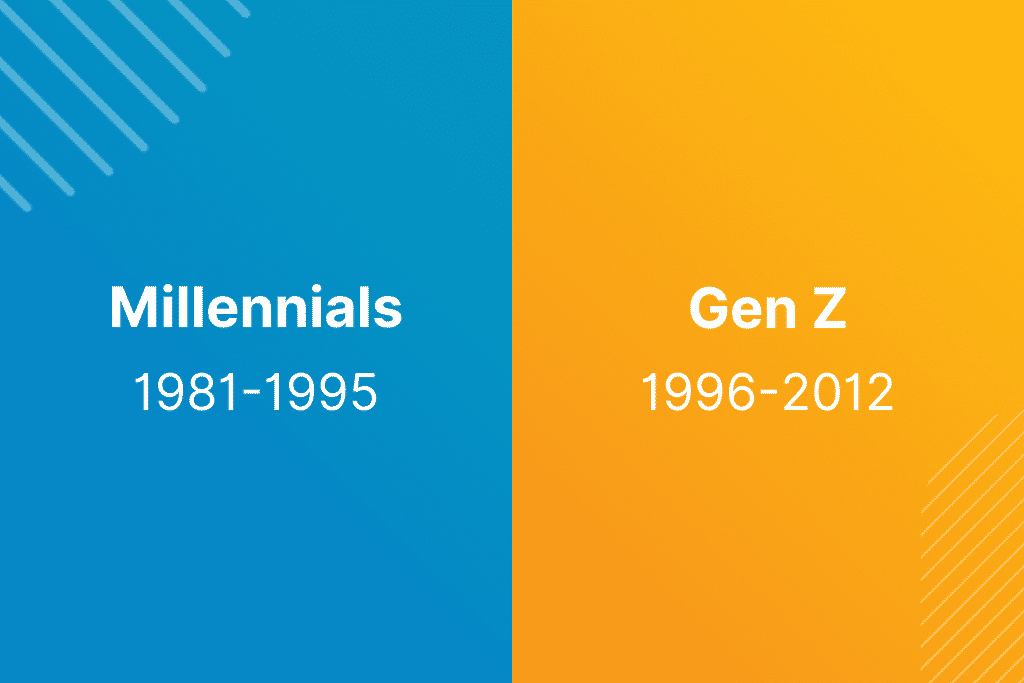
Today, Generation Z makes up about a quarter of the US population. They have grown up in a society where the digital world is just as equally “real” as the real world right from the moment when they were born; speaking up for themselves on the Internet is a natural and integral part of their lives. As a result, they have been frequently featured in the media in recent years as a “new generation with tremendous social and economic influence”, albeit in a tone crafted by curious, older generations.
“Generation Z (Gen Z)” generally refers to the generation born in the late 1990s and 2000s; I myself am included in this group. In Japan, Gen Z is often portrayed as a group of teenagers who aren’t afraid to speak out on political and social issues, such as artist Billie Eilish and environmental activist Greta Thunberg. However, the tone in which Gen Z is discussed by adults is not always a positive one. Mental health issues, smartphone and social media addictions, and the unconventional behavior showcased on TikTok, for example, are often narrated in the perspective of being “difficult for adults to understand”.
However, I would like to propose that in reality, Gen Z does not necessarily have to be defined by the year in which a person is born in, but rather, is a group of people that consciously choose to live by a set of values. Until now, access to information and the experiences gained by it has been extremely limited based on class, age group and region of residence. However, the ever-evolving advancement of technology has allowed a large majority of people regardless of their background, to access information freely, disrupting the structure that once allowed only a selected few to participate in the key discussions that shaped society. Generations that were once “divided” by mass media and spread out in local communities have been transformed into something that can be morphed and “bridged” by technology such as smartphones and the Internet, therefore dismantling the distinction that existed between generations based on age. So, what exactly are these “Gen Z values”?
Here, I will use “Gen Z values” as an umbrella term that encompasses values that enable people to actively participate in the changes of the 21st century and beyond, regardless of age, nationality, gender, sexuality, or cultural background. As globalization accelerates, social issues occurring in one part of the world are not simply contained within that country, but ripple around the world. Likewise, global issues constantly shape our vision and our opinions. In order to overcome the problems that past generations were not able to fix, and to continue to face the countless issues that are bound to arise in the future, we must hold ourselves accountable by having a shared set of values that we adhere to as a guiding light, which is something that is not limited by age.
In this series of articles, I will focus on Gen Z values, not as a topic that can be completely detached from mainly American culture, politics, and business, but rather how they interact with and affect a multitude of aspects of society, while considering the social context of the “Gen Z phenomenon” as it is happening in real time.

Diversity and Identity
One of the key Gen Z values that is often discussed, is the willingness to embrace diversity as well as change.
“A new Pew Research Center analysis of Census Bureau data finds that the “post-Millennial” generation is already the most racially and ethnically diverse generation, as a bare majority of 6- to 21-year-olds (52%) are non-Hispanic whites.”
The most stereotypical image of Generation Z is being “culturally diverse, tech-savvy, genderfluid and disliking old-fashioned norms”. Compared to previous generations, Gen Z is undoubtedly more connected to society and the wider world, due to the proliferation of gadgets and social media, allowing for people to form a habit to obtain real-time information on social issues from a very young age. It is this accessibility of information that has become an integral part of Generation Z values, allowing for them to attain a wider and more diverse perspective.
“Gen Zers are the most diverse and most multicultural generation the U.S. has ever seen. In a study by media company Awesomeness and research firm Trendara, Gen Zers describe themselves as: global with fluid identities, rule breakers, and tech natives (among other things). Gen Z also thinks social media, tech, and cyberbullying will have the biggest impact on their generation.
According to the Awesomeness study, nearly one-third of Gen Z says their age group is more likely to believe that everyone is equal. It’s no surprise then that they are more active in voicing their opinions about social issues, especially ones that spread like wildfire on social media. The majority of Gen Z says movements like Black Lives Matter (80%), transgender rights (74%), and feminism (63%), should be acceptable in society today.”
Meanwhile, despite being the most diverse generation, racial and geographic disparities remain stark in terms of quality of education, as well as college and high school dropout rates. Through the visceral power of social media, Gen Z is constantly faced with the reality of blatant, rampant systemic racism. No longer can young people afford to bask in the bliss of ignorance; speaking out against injustice is a bare minimum, regardless of social class or affluence. This phenomenon can be clearly observed from the flood of young people leading the Black Lives Matters movement, showing that the youth are constantly facing the need to call for action to confront disparity and discrimination that has persisted in society for far too long. They know that they have the means to organize, empower and resist, and they will use that power to take immediate action. They are not afraid to call out, question and educate those who are complacent with the status quo.
Activism
Gen Z values are rooted in the effort to make a difference. And with Gen Z activists on many fronts, leading not only protests but various forms of social activism (one example that many like to reference is the incident where Gen Z TikTok users messed up Trump’s rallies), and a strong passion for justice. In recent years, it has been pointed out that one of the major differences between Gen Z values and those of boomers and Gen X are income disparity, intolerance to racial discrimination and other social toxicities such as toxic masculinity and LGBTQ discrimination.
It is also a critical Gen Z value to be educated and concerned on climate change and global warming. Gen Z was born into a world where visceral documentaries of melting ice caps and dying endangered species were shown to them from a young age, as well the looming reality of the depletion of resources, all complex and extremely large-scale problems that cannot be reversed. By watching the daily news and seeing these graphic footage, Gen Z has always felt a sense of urgency and responsibility, causing constant anxiety that is also an unfortunate feature of the generation. In addition, the revival of vintage fashion and the ease of buying and selling second-hand clothing through thrifting shops online has taken a toll on fast fashion companies and old fashioned retailers, as Gen Z continues to make an effort to make educated purchases, and try to shop more ethically and sustainably.
That being said, it is important to note that Gen Z is not only in tune with global scale issues, but also strongly understand that they need to be active in their local communities as well, in order to create a sustainable society. They participate in protests, develop apps to solve local problems like homelessness and hunger, share information about politics and elections on social media, and utilize their online-savviness beyond the scope of their real-life friends and family.
“You wouldn’t expect the first generation immersed in social networking not to be community-focused, would you? One of the best Gen Z core values is that they care about other groups and formal volunteering. They believe more about action than words, and since they’re “always on,” they are continually sharing experiences.
They care very much about the planet, but also its people. As a group that cares about the community (local and global), they also value authentic brands and nonprofits.”
https://www.nonprofitpro.com/post/gen-z-core-values-what-you-need-to-know/#:~:text=One%20of%20the%20best%20https://www.nonprofitpro.com/post/gen-z-core-values-what-you-need-to-know/#:~:text=One%20of%20the%20best%20Gen,planet%2C%20but%20%20Also%20its%20people.Gen,planet%2C%20but%20%20Also%20its%20people.
Anti-Capitalist Political Views
“Eat the rich” “Fuck capitalism” “OK, boomer”
These have become phrases frequently wielded by Gen Z on social media, so commonly used to the point that it’s become a staple in the Gen Z dictionary. “Thousands of teens have responded through remixed reaction videos and art projects with a simple phrase: “ok boomer.”
“Ok boomer” has become Generation Z’s endlessly repeated retort to the problem of older people who just don’t get it, a rallying cry for millions of fed up kids. Teenagers use it to reply to cringey YouTube videos, Donald Trump tweets, and basically any person over 30 who says something condescending about young people — and the issues that matter to them.”
https://www.nytimes.com/2019/10/29/style/ok-boomer.html?auth=linked-google1tap
What they all have in common is a cynical anger pointed towards predecessors for creating a devastating economic situation, and consequently rebelling against capitalism itself (which has traditionally been seen as a typical “American” value). Gen Z grew up watching the millennials be forced to clean up the mess that the economically affluent boomers had made, and watched millennials chronically complain about their unfair working conditions and gigantic student loans, up to the point where that became part of the depressing millennial aesthetic. Instead of channeling that frustration into the lamentations like the stereotypical millennial, Gen Z values revolve around things like cheering for Democratic Socialist Bernie Sanders, and looking up to Alexandria Ocasio-Cortez, the youngest female congresswoman in history and a hard-liner on environmental issues. Gen Zers struggle with being satisfied with the “traditionally normal lifestyle” of working relentlessly from paycheck to paycheck, even if it means taking less time for themselves. With a preference for a more mindful and individualistic, yet socially conscious lifestyle, Gen Z aims to dismantle not only the patriarchy, but also the toxic social norms that had sacrificed the mental and physical health of far too many.
Gender and Sexuality
Musicians crowned as “Gen Z icons” (Clairo, Troye Sivan), movies that have been described as incorporating “Gen Z values” (Booksmart), and fashion trends described as “popular with Gen Z” (namely vintage fashion) all have one thing in common: they all embrace gender and sexuality fluidity, and incorporate queerness and gender neutrality into their work, in a way that does not conform to heteronormativity.
Those of the older generation may wonder why young people seem “so gay”. Many theories can be made about this, but one key aspect that must be kept in mind is that perhaps Gen Z is not “becoming” queer, but are rather realizing that there simply is no such thing as being “normal”, and are coming to acknowledge the fact that not everyone is meant to adhere to the overly cisgender/hetereosexual social norms that were strongly enforce din the previous generations. Queer culture is no longer only limited to exist in the peripherals of pop culture, but are gradually becoming embraced and accepted in mainstream media as well. Social media reflects the colorful diversity of society, queer pride being embodied by celebrities, artists and influencers. While there is still a very long way to go until gender and sexual equality can be achieved, one no longer has to feel like they are the only one in the world that does not identify with cis-hetero values, but with a swipe of their finger, can easily access a safe space where people can open up about their identities. Just as the phrase “gender is a social construct” has become a classic slogan of liberal Gen Zers, they believe that self-identity is a fluid concept, and how you perceive your gender/sexuality should be a personal process.
“According to a report by trend forecasting agency J. Walter Thompson Innovation Group, only 48 percent of Gen Zs identify as exclusively heterosexual, compared to 65 percent of millennials aged 21 to 34.
Those belonging to Generation Z also rejected the gender binary while shopping—only 44 percent said they always bought clothes designed for their own gender, versus 54 percent of millennials. But they also felt strongly that public spaces should provide access to gender neutral bathrooms, with 70 percent of Gen Zs coming out in support of the move compared to 57 percent of 21–34-year-olds.”
https://www.vice.com/en/article/kb4dvz/teens-these-days-are-queer-af-new-study-says
To Conclude

Young people around the world speak up and take action, because they acknowledge and are in touch with the rights and influence they hold, and they are well aware that the only way to not be underestimated is to use the unique power that is their “Gen Z values”.
One thing that is clear is that we, Generation Z, do not speak up for the sake adults, nor do we aspire to be outspoken for their benefit, nor do we intend to be their savior, and would definitely prefer if we didn’t have to clean after the mess that the previous generations have left for us to deal with. We raise our voices because the adults in power won’t listen to our earnest cries unless we scream loud enough and long enough to be heard.
We speak up because we hold compassion for those who are suffering, a bare minimum that can seem so rare in a society entrenched in apathy and ignorance. We speak up, because we don’t want the next generation, or the generation after that, to ever have to feel the same way.
We speak up because the adults did not speak up for us.Gen Z will continue to speak up for Gen Z, and that’s what Gen Z values are all about.
Photography Kyotaro Nakayama



 www.criteo.com
www.criteo.com